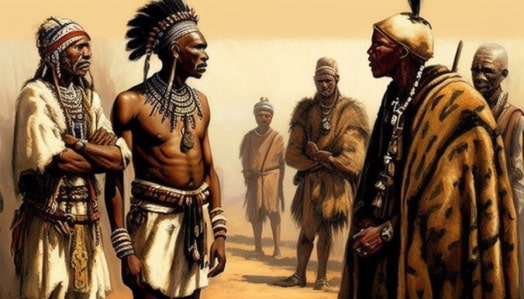 The Xhosa people have a complex and intertwined history with the Khoi San, who are an indigenous hunter-gatherer people of South Africa.
The Xhosa people have a complex and intertwined history with the Khoi San, who are an indigenous hunter-gatherer people of South Africa.
Historically, the Xhosa and Khoi San had a relationship based on trade, as the Xhosa relied on the Khoi San for items such as animal skins, ivory, and ostrich eggs, which were highly valued in their society. However, the arrival of European settlers in the 17th century disrupted this relationship, as the settlers began to colonize and exploit the land that both groups inhabited.
The Xhosa and Khoi San also had conflicts over land and resources, as both groups relied on the same areas for hunting and grazing. These conflicts were further exacerbated by the arrival of European settlers, who sought to control and exploit the land for their own purposes.
Over time, the Xhosa and Khoi San began to intermarry and form hybrid communities, which further complicated their relationship. The Xhosa also adopted some aspects of the Khoi San culture, such as their language and hunting techniques.
Today, the Xhosa and Khoi San continue to share some cultural and linguistic similarities, and efforts are being made to preserve and celebrate the cultural heritage of both groups. However, the legacy of colonization and exploitation has had a lasting impact on their relationship and the way they interact with each other.

